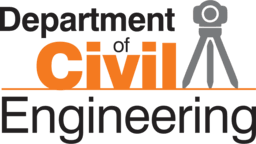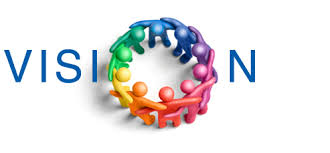DEPARTMENT Of CIVIL ENGINEERING
60 Intake

About The Department
The Department of Civil Engineering was established in the year 2014. At present, it offers undergraduate programme, B.E. in Civil Engineering with a sanctioned intake of 60 students. The Department broadly covers important fields such as Surveying, Geotechnical Engineering, Structural Engineering, Hydraulics and Water Resources Engineering, Construction Materials and Practices, Environmental Engineering and Transportation Engineering.
The Department has well established modern laboratories to cater to the needs of academic and research activities. It is well equipped with computational facilities and resources both in terms of hardware and software. The Department constantly facilitates students from other departments of the Institute as a gesture of support to their academic, co-curricular and research desires.
The Department has well-qualified and committed faculty members, lab technicians and modern infrastructure in the form of elegant and smart classrooms, spacious laboratories, latest machinery and equipment. Students are encouraged to participate in co-curricular and extra-curricular activities to acquire leadership qualities. The Civil Engineering Association RIT STRUCTA has been functioning for the benefit of the students. It serves as a platform for students to make technical presentations, gain knowledge about recent advancements and bring together novel ideas. This Association aims at bridging the gap between the academic and the industry by inviting renowned industrialists and academicians to interact with students. Guest lectures, industrial visits, site visits, etc., are organized and value added courses are conducted on regular basis to ensure that students are conversant with recent developments in the field of Civil Engineering.

Vision:
Commits to serve the society at large in the field of Civil Engineering with emphasis on value based state of the art technical knowledge, inculcating applied research, innovation and entrepreneurial skills.

Mission:
1. To strengthen our social relationship with all stake holders for holistic development of mankind.
2. To mentor students for innovative thinking with relevance to entrepreneurship.
3. To endeavor for excellence in all facets of Civil Engineering.
4. To promote and undertake research relevant to Civil Engineering Industry.

Goals:
• In pursuit of excellence in research outcome ,Quality Publications, Sponsored R&D projects, Patents and Products.
• Emplacing at least ten percent of Students to be the First Generation Entrepreneurs and thirty percent students for Higher Education
in Institutes of Repute.
• To establish two Centers of Excellence in diversified areas of Civil Engineering.
• To be a globally recognized Civil Engineering Department.
PROGRAM OUTCOMES
PO1: ENGINEERING KNOWLEDGE: APPLY THE KNOWLEDGE OF MATHEMATICS, SCIENCE, ENGINEERING FUNDAMENTALS, AND ENGINEERING SPECIALIZATION TO THE SOLUTION OF COMPLEX ENGINEERING PROBLEMS.
PO2: PROBLEM ANALYSIS: IDENTIFY, FORMULATE, RESEARCH LITERATURE, AND ANALYZE COMPLEX ENGINEERING PROBLEMS TO ARRIVE AT SUBSTANTIATED CONCLUSIONS USING FIRST PRINCIPLES OF MATHEMATICS, NATURAL, AND ENGINEERING SCIENCES.
PO3: DESIGN/DEVELOPMENT OF SOLUTIONS: DESIGN SOLUTIONS FOR COMPLEX ENGINEERING PROBLEMS AND DESIGN SYSTEM COMPONENTS, PROCESSES TO MEET THE SPECIFICATIONS WITH CONSIDERATION FOR THE PUBLIC HEALTH AND SAFETY, AND THE CULTURAL, SOCIETAL, AND ENVIRONMENTAL CONSIDERATIONS.
PO4: CONDUCT INVESTIGATIONS OF COMPLEX PROBLEMS: USE RESEARCH- BASED KNOWLEDGE INCLUDING DESIGN OF EXPERIMENTS, ANALYSIS AND INTERPRETATION OF DATA, AND SYNTHESIS OF THE INFORMATION TO PROVIDE VALID CONCLUSIONS.
PO5: MODERN TOOL USAGE: CREATE, SELECT, AND APPLY APPROPRIATE TECHNIQUES, RESOURCES, AND MODERN ENGINEERING AND IT TOOLS INCLUDING PREDICTION AND MODELING TO COMPLEX ENGINEERING ACTIVITIES WITH AN UNDERSTANDING OF THE LIMITATIONS.
PO6: THE ENGINEER AND SOCIETY: APPLY REASONING INFORMED BY CONTEXTUAL KNOWLEDGE TO ASSESS SOCIETAL, HEALTH, SAFETY, LEGAL AND CULTURAL ISSUES AND THE CONSEQUENT RESPONSIBILITIES RELEVANT AND CULTURAL ISSUES AND THE CONSEQUENT RESPONSIBILITIES RELEVANT TO PROFESSIONAL ENGINEERING PRACTICE.
PO7: ENVIRONMENT AND SUSTAINABILITY: UNDERSTAND THE IMPACT OF PROFESSIONAL ENGINEERING SOLUTIONS IN SOCIETAL AND PROFESSIONAL ENGINEERING SOLUTIONS IN SOCIETAL AND ENVIRONMENTAL CONTEXTS AND DEMONSTRATE KNOWLEDGE OF AND NEED FOR SUSTAINABLE DEVELOPMENT.
PO8: ETHICS: APPLY ETHICAL PRINCIPLES AND COMMIT TO PROFESSIONAL ETHICS AND RESPONSIBILITIES AND NORMS OF ENGINEERING PRACTICE.
PO9: INDIVIDUAL AND TEAM WORK: FUNCTION EFFECTIVELY AS AN INDIVIDUAL, AND AS A MEMBER OR LEADER IN DIVERSE TEAMS AND IN MULTIDISCIPLINARY SETTINGS.
PO10: COMMUNICATION: COMMUNICATE EFFECTIVELY ON COMPLEX ENGINEERING ACTIVITIES WITH THE ENGINEERING COMMUNITY AND WITH SOCIETY AT LARGE, SUCH AS BEING ABLE TO COMPREHEND AND WRITE EFFECTIVE REPORTS AND DESIGN DOCUMENTATION MAKE EFFECTIVE PRESENTATIONS AND GIVE AND RECEIVE CLEAR INSTRUCTIONS.
PO11: PROJECT MANAGEMENT AND FINANCE: DEMONSTRATE KNOWLEDGE AND UNDERSTANDING OF ENGINEERING AND MANAGEMENT PRINCIPLES AND APPLY THESE TO ONE’S OWN WORK, AS A MEMBER AND LEADER IN A TEAM, TO MANAGE PROJECTS AND IN MULTIDISCIPLINARY ENVIRONMENTS.
PO12: LIFE-LONG LEARNING: RECOGNIZE THE NEED FOR AND HAVE THE PREPARATION AND ABILITY TO ENGAGE IN INDEPENDENT AND PREPARATION AND ABILITY TO ENGAGE IN INDEPENDENT AND LIFELONG LEARNING IN THE BROADEST CONTEXT OF TECHNOLOGICAL CHANGE.
PROGRAM SPECIFIC OUTCOMES:
PSO1: STUDENTS WILL ABLE TO CONDUCT ROAD SURVEY AND LAND SURVEY BY USING AUTO LEVEL AND TOTAL STATION.
PSO2: STUDENTS WILL ABLE TO DETERMINE THE DETAILED ESTIMATE OF BUILDING AND THEIR COMPONENTS AS PER DSR.